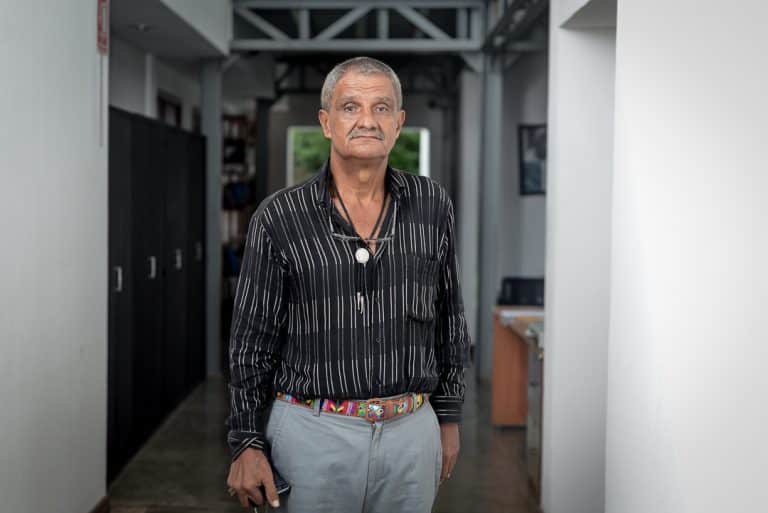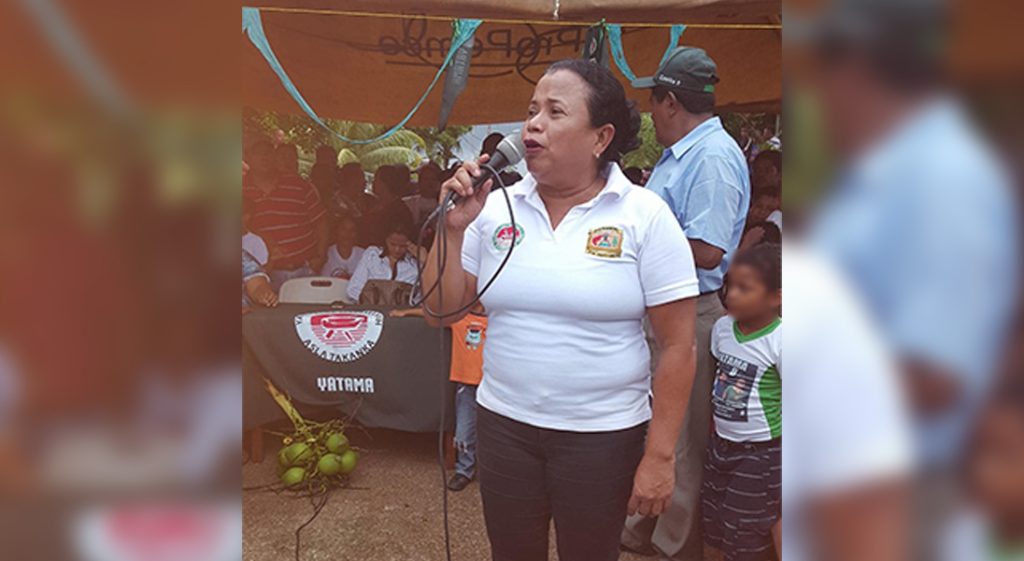14 de noviembre 2023

Children of Exile: The Births “Sowing Hope” in the Camp of Nicaraguan Farmers

PUBLICIDAD 1M
PUBLICIDAD 4D
PUBLICIDAD 5D
Nicaraguan indigenous movement denounces arbitrary detention of its leaders, suspension of its legal right to operate, closure of its radio station

Yatama leader Brooklyn Rivera / Photo: Confidencial
Yatama, now an outlawed indigenous political party, celebrated 44 years of existence amid denunciations of the abduction of Brooklyn Rivera, their ta upla [leader]. Rivera, who was detained by the police, has been “missing since September 29,” together with his former substitute in the Nicaraguan Congress, Nancy Elizabeth Henriquez, who has been “imprisoned since October 1.”
Since its foundation, the organization known in Miskito as Yapti Tasba Masraka Nanih Aslatakanka or Yatama, has defined itself as “a social movement of Nicaragua’s indigenous and Afro-descendent people.” The organization has gone through various phases, including a time in the 80s when they opposed the Sandinista regime militarily, and a later period when they were their electoral allies.
“They won’t be able to silence our voices, and they won’t be able to stop our struggle. Today, on this anniversary, we reaffirm our commitment to the defense of our communities and our territories,” the organization declared in a written statement.

Yatama noted that from the time of their creation: “we’ve struggled and we continue struggling tirelessly, to guarantee the economic, social, political and environmental rights of our indigenous peoples and communities,” including the recuperation of their offices in Bilwi and Waspam.
In the same vein, they declared they would continue, “standing our ground in the struggle, protecting the rights of our communities, which have been left forgotten, to face land invasions, killings, forced displacements and environmental destruction.”
“The food crisis we face is the consequence of the plundering of our territories in order to convert the land into cattle ranches, transnational mining concessions, and Chinese companies. Our regional autonomy and its institutions have been coopted, and our political organization has been stripped of its legal right to operate, violating our right to political participation,” they stated.
On September 29, Yatama helplessly witnessed the abduction of their leader, Brooklyn Rivera. The regime of Daniel Ortega and Rosario Murillo had denied him entrance back into the country, after the indigenous leader participated in a forum on indigenous communities at the New York headquarters of the United Nations. After being denied legal entry into his own country, Rivera found a way to cross the border undetected.
Later, on October 4, the regime sentenced the organization to political death, when the Electoral Council – an institution under the thumb of Ortega and Murillo, – stripped Yatama of its legal operating status, accusing them of “Treason to the homeland,” “Actions that undermine the national independence, sovereignty, and self-determination,” and of supposedly having incited “foreign intervention” and demanding “economic sanctions to harm the State.”
In addition, Nahima Diaz, head of Nicaragua’s Telecommunications and Post Office services, ordered the closure of the Yapti Tasba Bila Baikra community radio station that was operating in Bilwi and Waspam on Nicaragua’s Atlantic Coast. She tried to justify her actions by asserting that the station “was operating illegally.” The indigenous organization denounced her action as violating “the right to freedom of communication and information.
In their statement, the Yatama officials promised that working “clandestinely and from exile, we’ll continue fighting for our rights to self-determination and the full exercise of our autonomy.”
This article was originally published in Spanish in Confidencial and translated by Havana Times. To get the most relevant news from our English coverage delivered straight to your inbox, subscribe to The Dispatch.
PUBLICIDAD 3M
Confidencial es un diario digital nicaragüense, de formato multimedia, fundado por Carlos F. Chamorro en junio de 1996. Inició como un semanario impreso y hoy es un medio de referencia regional con información, análisis, entrevistas, perfiles, reportajes e investigaciones sobre Nicaragua, informando desde el exilio por la persecución política de la dictadura de Daniel Ortega y Rosario Murillo.
PUBLICIDAD 3D